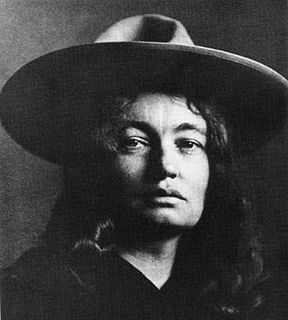A Quote by Sophocles
All is disgust when a man leaves his own nature and does what is unfit.
Related Quotes
Every man is proud of what he does well; and no man is proud of what he does not do well. With the former, his heart is in his work; and he will do twice as much of it with less fatigue. The latter performs a little imperfectly, looks at it in disgust, turns from it, and imagines himself exceedingly tired. The little he has done, comes to nothing, for want of finishing.
Hitler appeared, a man with limited intellectual abilities and unfit for any useful work, bursting with envy and bitterness against all whom circumstance and nature had favored over him....In his desperate ambition for power he discovered that his speeches, confused and pervaded with hate as they were, received wild acclaim by those whose situation and orientation resembled his own. He picked up this human flotsam on the streets and in the taverns and organized them around himself. This is the way he launched his political career.
Believing, repenting, and the like, are the product of the new nature; and can never be produced by the old corrupt nature... as the child cannot be active in his own generation, so a man cannot be active in his own regeneration. The heart is shut against Christ: man cannot open it, only God can do it by his grace.
The most innocent man, pressed by the awful solemnities of public accusation and trial, many be incapable of supporting his own cause. He may be utterly unfit to cross-examine the witnesses against him, to point out the contradictions or defects of their testimony. And to counteract it by properly introducing it and applying his own.
What a man does, that he has. What has he to do with hope or fear? In himself is his might. Let him regard no good as solid but that which is in his nature, and which must grow out of him as long as he exists. The goods of fortune may come and go like summer leaves; let him scatter them on every wind as the momentary signs of his infinite productiveness.
Man is the only animal who does not feel at home in nature, who can feel evicted from paradise, the only animal for whom his own existence is a problem that he has to solve and from which he cannot escape. He cannot go back to the prehuman state of harmony with nature, and he does not know where he will arrive if he goes forward. Man's existential contradiction results in a state of constant disequilibrium. This disequilibrium distinguishes him from the animal, which lives, as it were, in harmony with nature.
Man is a great blunderer going about in the woods, and there is no other except the bear makes so much noise. ... The cunningest hunger is hunted in turn, and what he leaves of his kill is meat for some other. That is the economy of nature, but with it all there is not sufficient account taken of the works of man. There is no scavenger that eats tin cans, and no wild thing leaves a like disfigurement on the forest floor.
Does the open wound in another's breast soften the pain of the gaping wound in our own? Or does the blood which is welling from another man's side staunch that which is pouring from our own? Does the general anguish of our fellow creatures lessen our own private and particular anguish? No, no, each suffers on his own account, each struggles with his own grief, each sheds his own tears.






































